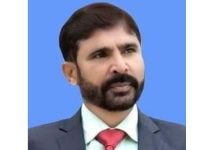Muhammad Zaka Ullah
The selection and proper use of terminology hold fundamental importance in any intellectual and social system. Words are not only tools for expressing thoughts, but they also shape the ideological structure of society. Unfortunately, a common tendency in our society is to adopt terms without uncritically understanding and deep reflection, leading not only to intellectual confusion but also to the distortion of the original message. This issue becomes even more critical in religious discourse, where thecareless use of terminology can give rise to multiple interpretations, ultimately obscuring the true essence of the message.Take, for example, the term “Islamic governance.”Different schools of thought interpret it in their own way. In addition, words like “Islamic economic system,” “Islamic teachings,” and “Islamic society” have become ambiguous because every sect claims its own interpretation as the ultimate “Islamic” understanding. In contrast, the term “Quranic teachings” is far more precise, as the Quran is an immutable, preserved, and universally applicable code of life. When we describe a principle and law as “Quranic,” it is not confined to any particular school of thought;ratherit assumes a clear and undisputed status.
This problem extends to religious discourse as well. Some individuals wants to impose their own interpretations as the definitive understanding of faith, andleaving no room for different idea and perspectives. This mind set deepens religious divisions and fuels ideological chaos. Then the question arises,if the Quran is a clear and self-explanatory book, why do different people derive different meanings from it? Is this due to the vastness of the Arabic language, or is it simply a means for some to establish a unique intellectual identity? The truth is that understanding the Quran is not limited to literal translations and interpretations; its primary purpose is to inspire critical thinking and improve human actions. If intellectual engagement with the Quran fails to bring moral and behavioural refinement, then such discussions are meaningless.This intellectual turmoil becomes even more complex when the traditional religious elite and clergy use faith as a tool to distance people from their fundamental needs and social development. Religions were meant to promote human welfare and social justice, but unfortunately, religious authorities have turned them into instruments of exploitation, deprivation, and ideological rigidity. Humanity was not sent to this world merely for worship but also to establish a just and equitable social order where every individual has access to food, dignity, and security. This is the core message that religious leadership has ignored, leading to a society where religion is often used to foster division rather than unity.
A well-known truth is that the first word of society is bread, this sentence reflects a fundamental social reality. Until a person has food to eat, a shelter over their head, and access to basic necessities, no high level ideology and belief system can truly influence them. A starving person does not ponder philosophical debates or religious injunctionshis primary concern is finding his next meal. This is why intellectuals and religious leaders must prioritize human welfare over abstract ideological disputes.
A similar argument is found in socialist thought and ideology.Great thinkers like Karl Marx, Friedrich Engels, and other socialist philosophers argued that until wealth and resources are distributed equitably, people cannot attain true intellectual consciousness. If a person is hungry, deprived of basic needs, and struggling for survival, they will not be receptive to lofty ideological concepts. The Quran, too, preaches social justice, but do today’s religious leaders actively promote this message? No because their vested interests lie in maintaining a system where hunger, fear, and exploitation persist.We must recognize that real social progress requires not only intellectual and religious freedom but also economic justice. Before preaching any ideology or belief system, it is essential to address the basic needs of those we seek to influence. Only when a person is free from hunger and enjoys social security can they truly grasp the meaning of knowledge, awareness, and intellectual freedom.This is why, if we genuinely desire societal improvement, intellectual debates and religious discourse alone will not suffice, we need concrete actions. We must build a society where everyone has equal rights, where no one goes to bed hungry, and where religion is not used as a tool of oppression but as a force for true human service. Until these fundamental issues are resolved, we will remain entangled in ideological discussions without achieving real progress.The question is: Are we ready for this intellectual revolution? Are we willing to break free from traditional religious and ideological constraints to build a genuinely humane society? If not, then we must accept the reality that we will continue to exist in a cycle of endless words, devoid of any real change.












